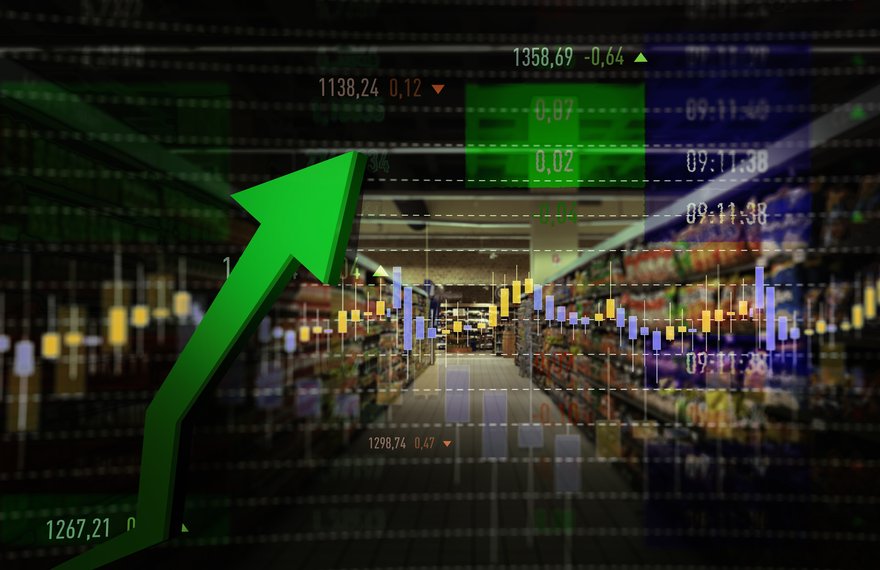Publix is one of the largest grocery store operators in the U.S. It also routinely rates high with customers as one of the best grocery stores.
The company's ownership culture has much to do with its high customer ratings. Publix is an employee-owned company. George Jenkins founded Publix in 1930 and wanted its employees to share in owning the company because he believed they'd take better care of it and its customers.

That vision has served Publix well over the years. The company has steadily grown value for its employee-owners as they have helped increase its sales and profits.
The company's success in growing shareholder value has many outside investors hoping it will eventually complete an initial public offering (IPO) so they can buy shares. Here's a look at everything you need to know about how to invest in Publix if it goes public and alternative ways to invest in stocks similar to Publix.
IPO
Is Publix publicly traded?
Is Publix publicly traded?
Publix is not a publicly traded company. As mentioned, it's privately owned by the founder's family and past and present employees. Publix created an employee stock purchase plan in 1959 so that employees could buy shares, and it has since remained private.
When will it IPO?
When will Publix IPO?
Publix didn't have an IPO on the calendar as of early 2024. The grocery store operator likely won't go public soon, if ever. The employees would have to decide collectively to take the company public, which would likely impact Publix's culture significantly.
Jenkins believed that if employees owned the company, they'd take better care of it and work hard to improve it every day. However, if outside shareholders owned the company, their focus would likely be on maximizing profitability, potentially at employees' expense.
How to buy
How to buy Publix stock
Unless you are a current eligible Publix employee, you can't buy shares of the grocery store operator. Current eligible Publix associates can buy shares of the company during designated periods. Eligible employees must complete a stock purchase agreement on the Publix website during an offering period to buy shares.
Employee Stock Ownership Plan (ESOP)
Although the general public can't buy Publix stock, they can consider alternative options. Three top grocery and retail stocks worth a look include:
Costco
Costco (COST 1.01%) operates membership warehouses. The company's warehouses provide members with low-priced groceries, health and beauty products, jewelry, furniture, housewares, televisions, and other items. Costco operated 871 warehouses in early 2024, including 600 in the U.S. The company rang up $26.2 billion of retail sales in December 2023, a 9.9% increase from the prior-year period.
Kroger
Kroger (KR -0.75%) is one of the largest grocery store operators in the country. It operated 2,721 supermarkets and multi-department stores as of early 2024. The company operates several grocery store banners, including Kroger, Ralphs, Harris Teeter, and Fred Meyer.
Kroger agreed to acquire Albertson's (ACI 1.1%) in 2023 for $24.6 billion in a deal that would give it a national footprint. Although the acquisition is facing regulatory scrutiny, Kroger hopes to close the transaction in 2024 by selling some stores to ensure there's enough local competition to keep prices low for consumers.
Walmart
Walmart (WMT -0.08%) is the largest retailer in the country, with more than $600 billion in annual revenue. It operates about 10,500 stores and several e-commerce sites. In addition to groceries, Walmart sells household items, clothing, electronics, and more.
Investors who want to buy one of these Publix competitors can purchase shares in any brokerage account. Here's a step-by-step guide on how to invest in grocery stocks like Publix.
Step 1: Open a brokerage account
You'll have to open and fund a brokerage account before buying shares of any company. If you still need to open one, here are some of the best-rated brokers and trading platforms. Take your time to research the brokers to find the best one for you.
Step 2: Figure out your budget
Before making your first trade, you'll need to determine a budget for how much money you want to invest. You'll then want to decide how to allocate that money. The Motley Fool's investing philosophy recommends building a diversified portfolio of 25 or more stocks you plan to hold for at least five years.
You don't have to get there all at once. For example, if you have $1,000 available to start investing, you might want to begin by allocating that money equally across at least 10 stocks and then grow from there.
Step 3: Do your research
It's essential to thoroughly research a company before buying its shares. You should learn about how it makes money, its competitors, its balance sheet, and other factors to ensure you have a solid grasp on whether the company can grow value for its shareholders over the long term.

Step 4: Place an order
Once you've opened and funded a brokerage account, set your investing budget, and researched the stock, it's time to buy shares. The process is relatively straightforward. Go to your brokerage account's order page and fill out all the relevant information, including:
- The number of shares you want to buy or the amount you want to invest to purchase fractional shares.
- The stock ticker (COST for Costco, KR for Kroger, and WMT for Walmart).
- Whether you want to place a limit order or a market order. The Motley Fool recommends using a market order since it guarantees you buy shares immediately at market price.
Once you complete the order page, click to submit your trade and become a shareholder in one of these leading retail stocks. Investors would follow a similar process to buy an IPO stock like Publix should it ever go public. If shares become available, fill out the order page at your brokerage account with Publix's selected stock ticker and submit your trade.
Profitability
Is Publix profitable?
Though Publix is a private company, it files quarterly financial results with the Securities and Exchange Commission (SEC). The reports show that Publix is solidly profitable.
Publix reported its latest quarterly results in November 2023. The company generated $14 billion of revenue during that period, up 7.2% from the prior year. Meanwhile, revenue for the first nine months of the year was $42.4 billion, up 8.1% from the year-ago period.
The company reported $833 million of net income during the period, or $0.25 per share. Meanwhile, earnings through the first nine months of the year were $3.2 billion, or $0.95 per share.
Publix's profitability enables it to retain earnings to fund its expansion internally, allowing it to remain private. The company also returns some of its profits to shareholders each quarter by paying dividends. The company's current dividend rate is $0.10 per share each quarter. The dividend payment enables the company to return a portion of its profits to employees who own shares.
Should I invest?
Should I invest in Publix?
If you are a Publix employee, you should consider investing in its stock. Buying shares allows you to become part owner of a company with a long history of growing value for its owners.
For example, Publix's share price has increased from a split-adjusted $8.57 per share in March of 2019 to $15.10 per share as of November 2023, a 76.2% return. In addition, Publix pays its investors a quarterly dividend from its profits (currently $0.10 per share).
Although past performance is no guarantee of future success, Publix has a long history of profitably reinvesting the earnings it retains to grow shareholder value by expanding its store count. For instance, the company plans to expand to its eighth state in 2024 by opening its first store in Kentucky.
ETF options
ETFs with exposure to Publix
Many investors prefer to invest passively instead of actively managing a portfolio of stocks. Exchange-traded funds (ETFs) are a great way to be a passive investor.
Exchange-Traded Fund (ETF)
Unfortunately, you can't passively invest in Publix through an ETF because it's not a publicly traded company. However, you can use ETFs to invest in the retail sector, which has driven Publix's growth and returns for its private shareholders over the years. Two top retail ETFs to consider are:
- SPRD S&P Retail ETF (XRT 1.4%): This ETF aims to track the retail segment of the S&P total market index. It enables people to invest passively in publicly traded U.S. retailers. The ETF held the shares of 76 companies in early 2024, including Costco (1.5% of its holdings), Walmart (1.5%), and Kroger (1.4%). The fund had a 0.35% gross ETF expense ratio.
- VanEck Retail ETF (RTH 1.13%): This ETF focuses on the top 25 U.S. retail stocks. Its holdings included Costco (8.7% of the fund's assets), Walmart (7.4%), and Kroger (2%). This ETF also had a 0.35% expense ratio.
Related investing topics
The bottom line on Publix
Publix has had a lot of success as a private, employee-owned company. It has steadily increased its profits and share price by reinvesting its retained earnings into expanding its footprint.
Given its success, the company will likely maintain the status quo. Although that means public market investors probably won't ever get the chance to own shares, it can continue to grow value for its employees by sticking with its successful strategy.
FAQs
Investing in Publix FAQs
Can you invest in Publix stock?
You can invest in Publix stock only if you are an eligible active associate or a member of the company's board of directors. Publix isn't a publicly traded company, so the general public can't buy shares of Publix for their brokerage accounts.
How much is Publix stock?
Publix sets its stock price each quarter. As of Nov. 1, 2023, the stock price was $15.10 per share. That increased from the $14.75 per share price the company set on Aug. 1, 2023.
Can you buy Publix stock if you don't work there?
No, you can't buy Publix stock if you don't work there. Only active eligible employees and members of the company's board of directors can buy shares during a specified offering period.
Is Publix a private company?
Publix is a private company owned by past and present employees and members of the founder's family.
































































































































































































































